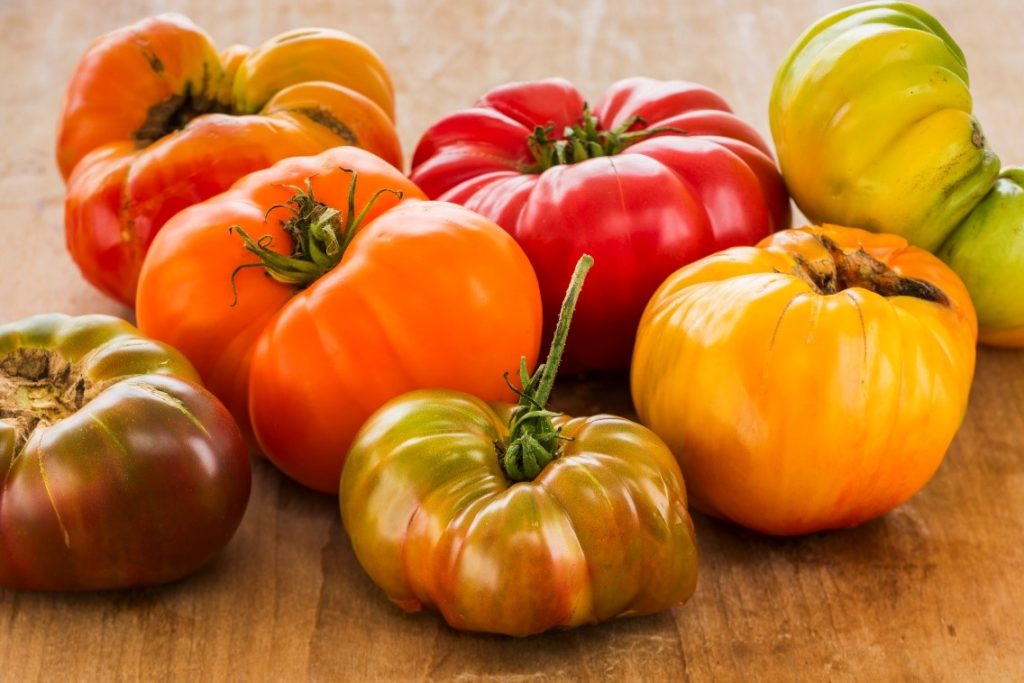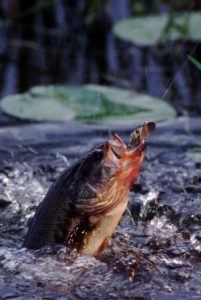June 30, 2020
DEP Milestone: It’s 1994, You Say ‘Tuh-May-Toe’ … and the DEP Addresses Mercury in Freshwater Fish

And, according to pickyourown.org, Jersey tomatoes will be available on July 5 – just five days from now.
What makes Jersey tomatoes so good?
Many Garden State growers point to the ideal weather and soil conditions: New Jersey has an abundance of loam and sandy loam soils, which are best for tomato production.
We also produce an assortment of tomatoes rich in flavor, tenderness and juiciness, including two leading varieties: ‘Rutgers’ and ‘Ramapo,’ developed by Rutgers plant breeders in 1934 and 1968, respectively. FYI: For the record, tomatoes are considered a fruit and a vegetable.
Jersey tomatoes are so popular that, each year, Rutgers University, the New Jersey Agricultural Experiment Station and Rutgers Cooperative Extension hold the Great Tomato Tasting Event and Snyder Farm Open House in Pittstown. Visitors can sample more than 80 heirloom and hybrid varieties of beefsteak, plum, cherry and grape tomatoes. (Unfortunately, the public health crisis has forced the cancellation of the 2020 event, but tomato lovers can stop by local farm stands to pick up tomatoes and other Jersey Fresh produce.)
Because they are delicate, these homegrown beauties must be handled carefully.
However, in 1994, a California company thought it could build a better tomato. Researchers at Calgene, in Davis, had discovered a way to inhibit a gene that produces a protein that makes a tomato become squishy.
That very same year, Calgene brought its slow-ripening Flavr Savr tomato – the first genetically engineered crop – to market. The Flavr Savr would become the first genetically engineered food product to earn FDA approval.
Yay! No more squishy tomatoes. But the Flavr Savr lasted only a few short years – by 1997, production was stopped.
The Jersey tomato, in all its delicious glory, lives on.
And now, a look at 1994 …
This year brought major changes to the Department of Environmental Protection. The incoming administration of Gov. Christine Whitman – the first woman to hold the governorship in New Jersey – declared the state “open for business” and promised regulatory reform. In the 1994 DEP Annual Report, agency leaders emphasized a shift away from a “command-and-control” philosophy of previous decades toward a partnership approach with the regulated community.

At the same time, progress on certain environmental issues continued. In July 1994, following a state-commissioned study that found elevated levels of toxic mercury accumulating in some species of popular freshwater sport fish, the DEP and the Department of Health issued consumption advisories for two species of freshwater fish.
In October, the DEP convened an Environmental Mercury Regional Workshop, with representatives from five other states and the federal government, to address the mercury issue and foster a regional approach for the establishment of fish advisories.
That same month, the department also adopted stringent mercury emission regulations for municipal solid waste incinerators – measures that reduced mercury emissions from local incinerators by more than 90 percent.
###